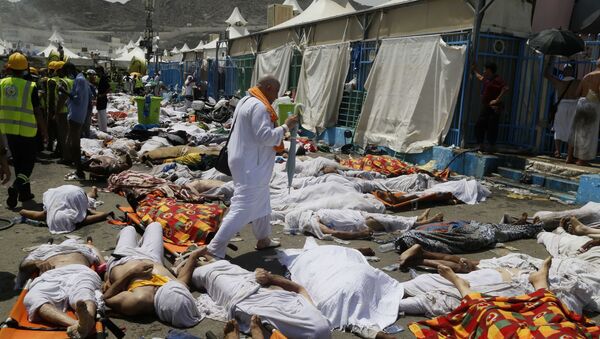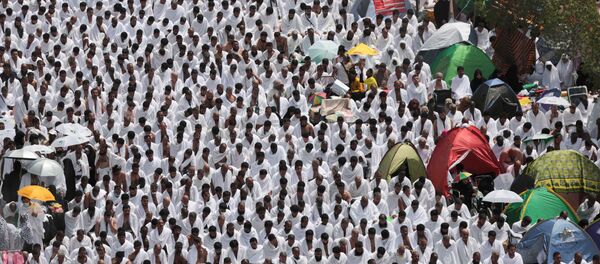According to Keynoush, Hajj — an annual Muslim pilgrimage to the holy cities of Mecca and Medina in Saudi Arabia — is a sensitive issue for both countries. Since Iran is an Islamic republic, it must guarantee the passage of Hajj to Iranian citizens. For Saudi Arabia, it is also important to guarantee the Hajj for all Muslims, regardless of their nationality or ethnic background.
Apart from the tragic incident, Riyadh broke diplomatic ties with Iran when its Tehran embassy was stormed in January over the Saudi execution of a Shi'ite cleric. Iranian Minister of Culture and Islamic Guidance, Ali Jannati, announced Sunday that Iran will not participate in Hajj because Saudi Arabia refused to accept conditions that would guarantee ‘preservation of the dignity of Iranian pilgrims during this year's Hajj.'
"In this year's Hajj agreement with the Saudis, to ensure a level of safety for its pilgrims that the Saudis had traditionally never felt the need to sign on to, the Saudi Hajj minister actually told the Iranians verbally that he would guarantee such safety." Keynoush explained.
"But to sign on to it would be to open up the kingdom to a level of scrutiny that it would be hard to live up to, given that Saudi Arabia would soon be hosting some ten million pilgrims from all over the world. So I think that these disagreements have let the Iranians to conclude that it would be hazardous and risky to send pilgrims on Hajj this year."
According to Keynoush, although Saudis earn a lot of money during Hajj and despite the fact that the Iranian pilgrims are known to be some of most generous, the Iranian boycott will not affect the Kingdom financially. After all, they're only going to miss around 17,000 people out of millions expected.
The situation is reminiscent of a 1987 incident when some 400 Iranians were killed by Saudi security forces after they staged anti-Saudi protests in Mecca, Keynoush explained. Iranians didn't go on Hajj for three years due to the conflict, and there's a huge potential for repeating the story.
"If we look at the history of the Hajj, it always seems to be the last straw that breaks the camel's back in Saudi-Iranian relations," Keynoush concluded.



